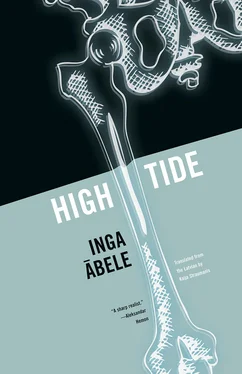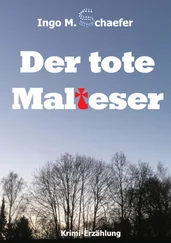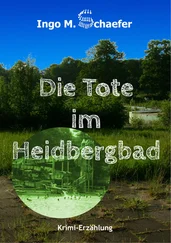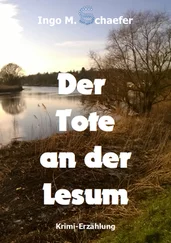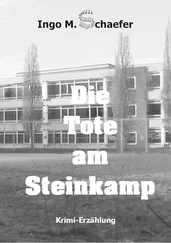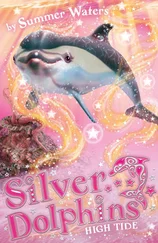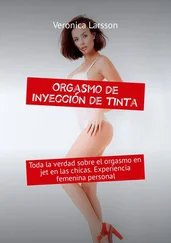But she’d lived with that two thirds of her life, and she’d had enough. She didn’t want to deal with it tonight, and launched a rebellion. She whined:
“Let’s go. I’m cold. C’mon, let’s go, good God are you going to stand here for hours? We’ll miss it!”
She walked forward a few steps, then stopped.
“That’s where all your memories are, all your friends, right? Transport cars and shackles, and dogs, and railroads — right? Well go, run, beg them, maybe they’ll let you into that car, huh? That’s where your entire life is, snitch!”
“Shut up!”
“But it’s over now,” the woman said from somewhere behind him, and started to cry.
“What’s over?”
She grew scared and got quiet.
“Don’t cling to any fantasies or hopes! Don’t! You’ll get exactly as much as you need. And leave the rest of it alone! I’ve put prison behind me. And I won’t tell you anything more!”
The woman stood on the tracks in the fall drizzle in her see-through stockings and stupid shoes, and trembled. The wind tore at her jacket, hair, and tugged at her thoughts, she looked so pathetic in her fancy get-up and red lipstick… and so close.
“Sweetheart,” she said, “but it’s over now.”
He spun around angrily and wanted to head back to the station. Ditch this drama and leave, like he’d done so many times before. But he suddenly felt that he couldn’t. It surprised him. He’d told her everything on his mind, but these words suddenly meant nothing, and disappeared like they’d been dropped down a well. Sweetheart, she’d answered, and was still standing there.
And he couldn’t go anywhere.
Strange. What’s left to not experience, he thought sadly.
He turned back around and started to climb down the steep embankment. She stumbled after him, crying out quietly when her foot slipped in the mud, and balanced meekly on one foot like a child when he brought the stray shoe to her and put it back on. Taking each other tightly by the hand, they dove downward, into the bright city.
Severalducks and a goose idly putter along and nibble stalks of grass by the canal downtown. The weather is hot and humid as a greenhouse. A storm shifts tensely high overhead, but it can’t pull itself together.
Monta and Andrejs, having left the apartment, sit outside at the café. Andrejs rubs his thumb over his train ticket — he always buys it ahead of time for the trip home.
Old men play checkers on a bench under the lindens by the café terrace. Squealing children run around the adjacent playground, where the blue and red plastic tunnels, steps, and towers radiate a poisonous heat into the absentminded dust of the city. Punks and National Bolshevisks lounge in the grass in their striped woolen sweaters. But for now, father and daughter have the café to themselves.
Monta tries to inconspicuously wipe the sweat from her upper lip. Andrejs watches the ducks, watches his daughter, does up and undoes the top button of his shirt. As if waking from a trance, they now and then hastily pick up their drinks. The tonic swims with the reflection of the trees overhead and the broken shadows from the straws. Andrejs’s straw is yellow, Monta’s blue. Andrejs has a strong, almost violent mouth set in a darkly tanned face. Monta’s lips are sensual and soft, with traces of red lipstick.
Monta opens her mouth several times without a sound, then resolutely returns her father’s stare with her icy blue eyes. When they’re together there isn’t much use for words.
Some mothers sitting on the long bench by the playground talk about something and then burst into laughter — the sound is sudden and free, like champagne bubbling from a bottle. Monta starts, then bites her straw. Andrejs hears the tiny, delighted squeal of a little boy and turns to wave to him. Monta sees the shadows of leaves chase each other across the aged skin of her father’s neck. She looks up at the sky; it’s sticky, it’s suddenly and completely closed off, blackened by something stifling and dark like soot. But the sky won’t open up for a while still, though the foliage might. Moisture gathers on the lindens from the humidity.
Her father faces her again, reaches across the table and touches the back of her hand, where the heat has drawn up a few bluish veins. Now the yellow-painted fingernail of her index finger traces vertical stripes in the condensation on her glass.
A small, mangy poodle runs into the flock of birds. He seems oblivious to the ducks, but aggressively herds the lone goose. The poodle’s owner, an elderly woman with a pale face and arms crossed behind her back, turns toward the canal and looks at the bright green embankment on the opposite side. Her ankles are swollen beneath light-colored stockings, knotty like a tree stump at the roots.
Right now this woman is alive. The grass along the canal is unbelievably green. It’s as if the thick air is seconds away from unrolling a rainbow over it all. Everything will smell like cool, wet dirt, and air.
That’s all in the past, Monta had said — with that accidentally, but firmly dismissing Andrejs’s usual landslide of memories. She keeps drawing her fingertips down the side of her glass. Monta feels guilty. She wants to bring her father out of the cave he finds so comforting. Wants his attention for the physical, flesh and blood Monta sitting across from her father on a woven metal chair. He can’t reach that Monta anymore because he’s still scattered somewhere in the past as Ieva Eglīte’s misplaced object.
She’d be grateful if he’d listen to her selflessly. And he’d listen to her selflessly if he had any room in his heart. But he doesn’t, Monta senses that. That’s what we are, she thinks. A lost love tames the soul and drains it dry.
Why the fuck did you kill Aksels, Dad?
But she’ll never ask him. The question has to do with an entirely different life of his. It would startle him. Maybe he’d feel pain like a snail being suddenly scraped out of its shell with a spoon?
He’ll never talk about it. And it’s his pride and his downfall.
They hug each other reservedly, then draw away and really look at each other. Then Andrejs leaves on the train, suspended by endless silver tracks that never intersect, never intersect.
And a few station stops later, his head drops to his chest as he falls asleep.
Conversations under Shifting Skies
“Haveyou ever been outside of yourself?”
“Outside myself? Sounds like an illness to me.”
“What kind?”
“Schizophrenia. Like one minute you’re one person, but someone else the next.”
“That’s not what I mean. It’s not an illness. It’s… Alright. Imagine you’re you. You’re with yourself at all times. You’re inside yourself, somewhere. I mean… Well… I don’t know where people normally go when they’re inside themselves.”
“Probably not to their feet.”
“But maybe there are people who do go into their feet.”
“Could be.”
“Of course. Nothing but the feet. A person could be in their big toe, too.”
“Or somewhere bigger — the knees, the hips, the ribs.”
“Higher.”
“The heart, then.”
“Sometimes the heart… Yeah. But for the most part I think people are within themselves around the eyes.”
“Not the ears?”
“It’s pretty much the same thing. On the border between the eyes and ears. At the temples. You’ve been there, somewhere, within yourself the whole time. The whole time you’d call your life. For a while I used to be in my fingertips. When I was a baby, before I could walk.”
Читать дальше
